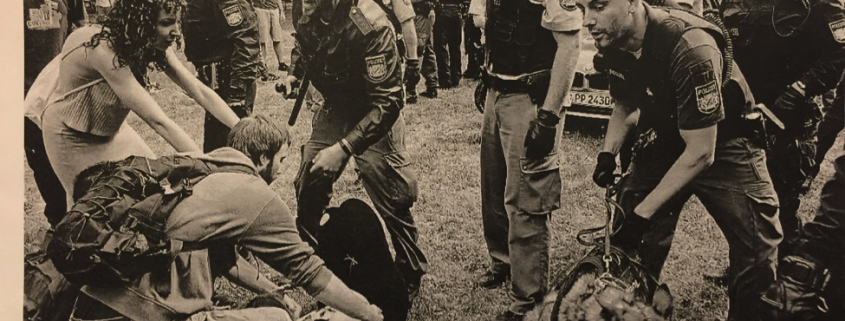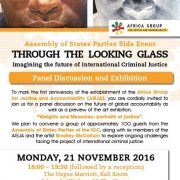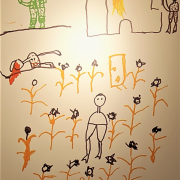The Power of Narratives
Often times, human rights concerns become a hot topic when they occur in grave violations or in places far away from us but sometimes we can also learn from situations taking place in smaller communities.
On the 29th of October 2018, I attended a small exhibition in Nuremberg, Germany, where a number of master’s students organized a forum called “The Power of Narratives” to provide a space for a counter narrative regarding the controversial police operation on the 31st of May 2017 at a vocational school called “B11” in Nuremberg.
To give some background, Asef N., a 20 year old Afghan national living in Germany was arrested in his classroom in order to be deported back to Afghanistan. During his arrest, a peaceful protest emerged by his classmates, members of the public and human rights activists. Unfortunately, when police authorities were unable to carry out the arrest due to the mounting of protestors, they became violent by dragging the protests off the street.
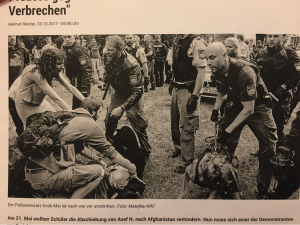
This created a national debate about Germany’s migration policy, solidarity and police use of force. This national debate was made evident by the mass collection of media glued to one side of the wall.
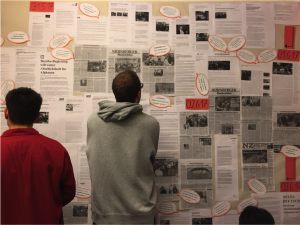
According to Johanna Böhm, a representative from the Bavarian Refugee Council, ‘the given status of Asef N. made it obligatory to leave because his asylum application was rejected. Still there are many legal and human perspectives which the authorities could have used but the Bavarian Authorities decided to take him out of class to deport him to a country which was and is in civil war. However, the cause of the resistance was due to the fact that this was an individual who has been living in Germany for many years (at this time it was more than 5 years), who is well integrated, and was awaiting a response regarding his status application.’
Since then, a number of activists have been arrested but no repercussions have taken place against the police authorities regarding their use of force. In addition, the situation has been used by some as a political tool to name and shame activists as ‘left-wing extremists.’
But is this case unique? It is not, according to Maria Gabriela, a Master’s student of Human Rights at the University of Erlangen-Nuremberg. ‘We see this happening everywhere, across Europe, South America and so on, where nationalism is tied with strong anti-migration discourse and stronger police intervention and the only way some people people feel protected is by such policies.’
Narratives form opinions, and opinions lead to different consequences. This exhibition was an impressive way to portray narratives and make us see them.

